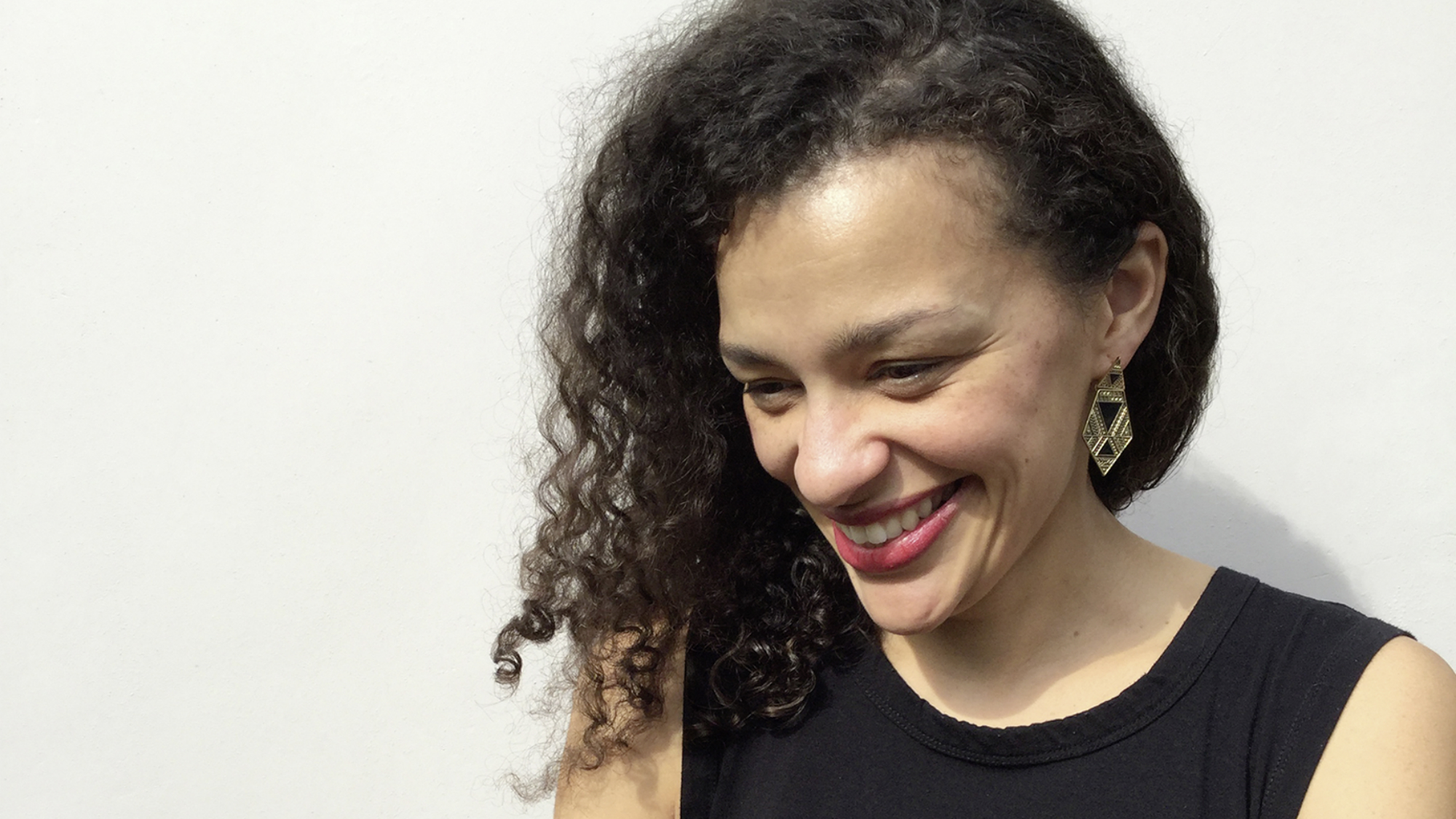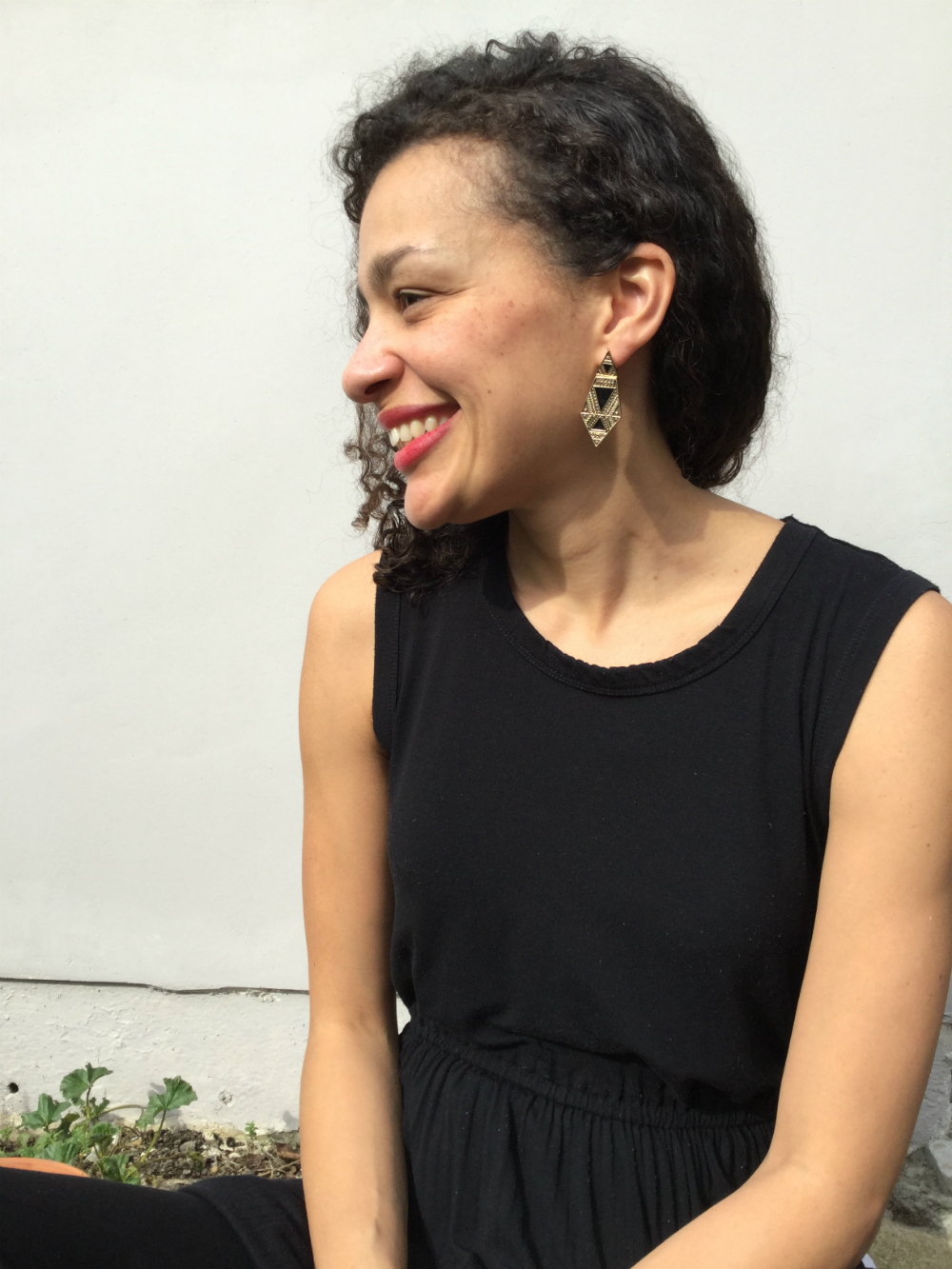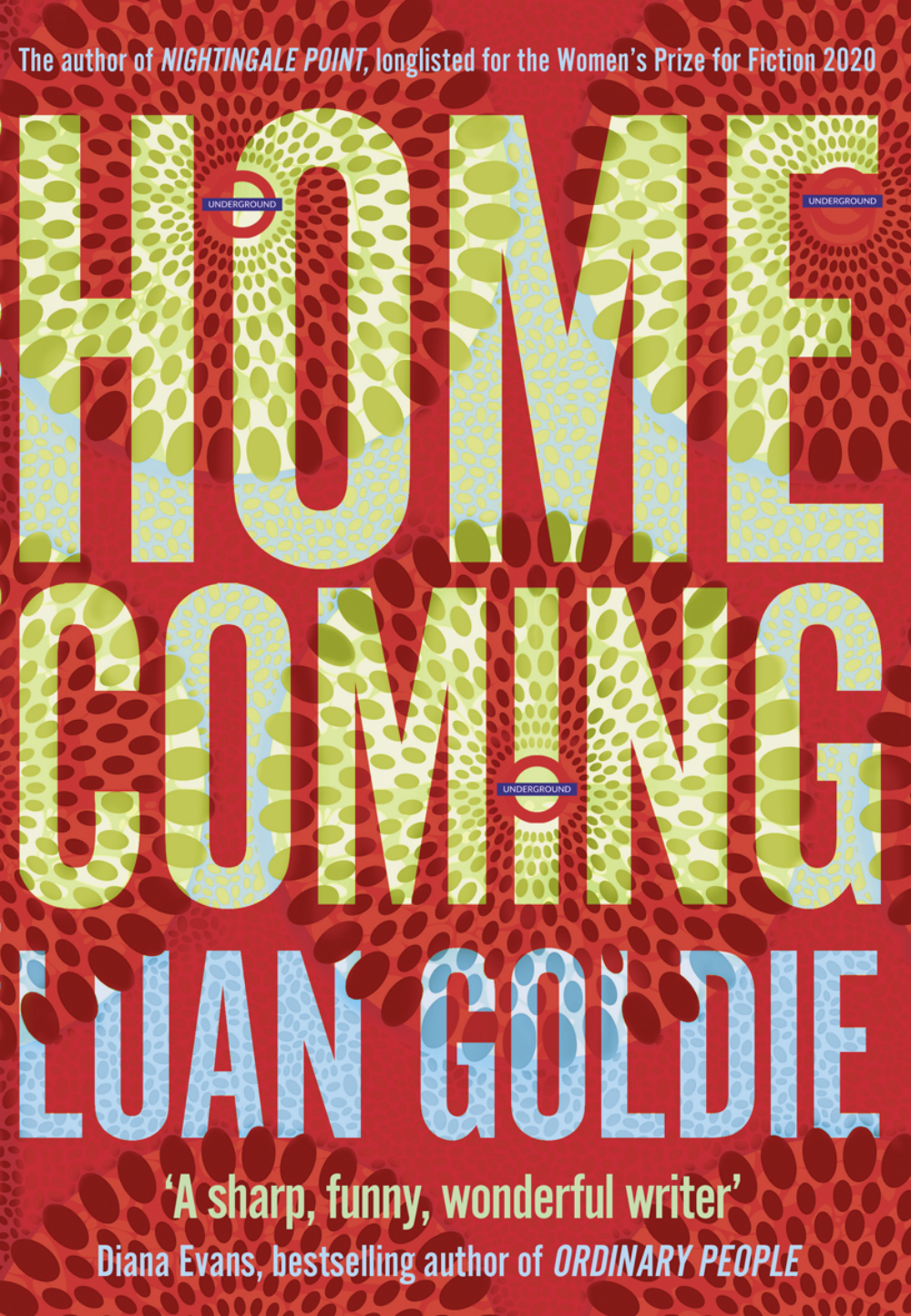'Why I'm living a double life' reveals author Luan Goldie
Luan Goldie is living in two worlds, one where she is a critically-acclaimed author and another where she is a primary school teacher in one of England’s most-deprived boroughs


Celebrity news, beauty, fashion advice, and fascinating features, delivered straight to your inbox!
You are now subscribed
Your newsletter sign-up was successful
Luan Goldie is living in two worlds, one where she is a critically-acclaimed author and another where she is a primary school teacher in one of England’s most-deprived boroughs
Luan’s debut novel Nightingale Point was published last year to huge critical and commercial acclaim. It was a BBC Radio 2 Book Club pick, and has been longlisted for the Women’s Prize, sitting amongst literary giants such as Hilary Mantel. Sounds like the stuff of dreams, But here Luan charts how she came to be torn between two worlds and two dream jobs. An author with a double life...
‘On the day the Women’s Prize for Fiction long list was announced I was too busy at school to engage with all the chat online. There were kids to be taught and books to be marked. There was also a new playground game called ‘Who’s got coronavirus’ which needed to be addressed.
After school I sat on the tube from Barking to The Strand. Somewhere along those sixteen stops I made the mental switch from my ‘real’ life as a teacher to my ‘fake second life’ as an author.
Double life begins
This all started years ago. After endlessly polishing my manuscript I began sending it out to literary agents. The ones who represented some of my favourite authors. Then one day I received a call from an agent. She spoke about the characters in my book like they were real people we both knew intimately. I knew she was the one.
The book, Nightingale Point, turned out to be a hard sell. It’s set on an East London council estate and follows a big cast of characters as they go through a disaster which changes their lives forever.

After two close calls with major publishers the book failed to sell and I began to write something new. Then, a year later, I was in the middle of a Year 1 reading session when my phone buzzed in my pocket. I snuck a look and saw my agent’s message ‘we have an offer from HarperCollins’. I wanted to call her straight away but had to wait, because nothing shits on an early reader more than someone hurrying them up so they can make a call.
Celebrity news, beauty, fashion advice, and fascinating features, delivered straight to your inbox!
Don't give up the day job
This is it, I thought, I’m going to quit teaching, sell millions of books, start drinking whisky and buy a château. But the reoccurring piece of advice I kept hearing from writers was ‘don’t quit your day job’. So I didn’t. And so I started living my double life.
When my colleagues found out the immediate question was, ‘What, books for children?’ to which I mistakenly answered, ‘No, adults.’
Queue rumours about my erotic writing side line and nickname 50 Shades of Goldie. But overall, no one was really that interested. The school day is busy and we already use up so much energy saying ‘well done’ to the kid who managed not to throw a chair at us, that we rarely say it to each other.
My debut launched last summer, just five days after I collected up my boxes of Milk Tray and Best Teacher Mugs on the last day of term. Nightingale Point had already been widely reviewed in the press and I’d even been on BBC Radio 2 to talk about it with Jo Whiley.
Financial stability
But by the time I had my launch party at Daunt in Marylebone, which happened to fall on the hottest day of the century, I was completely overwhelmed and exhausted. Like most teachers, I swing between thinking this is the best job in the whole world to this is exhausting torture. Every year I say it’s my last but then… I think just one more.
There’s also the small matter of financial stability. While some people make millions from books (just as I would have if I had a pound for every time someone said, ‘you’ll be like JK Rowling’) the majority of authors aren’t splashing around in six figure advances. And while the industry is slowly changing it still attracts writers from backgrounds where their family, spouse or past careers have put them in a position to be able to write full time.
Then there are the writers who aren’t rich, but supplement their income with other writerly things such as workshops, journalism and copyrighting. But to me this seems like an additional hustle and as someone who grew up on a council estate eating free school meals, I’m not keen on taking financial risks so I'll carry on with my double life.

People sometimes ask if the two careers feed into one another and I’m not sure. Though some of my characters are definitely an amalgamation of the most unforgettable kids I’ve taught over the years. Like Elvis in Nightingale Point, a big hearted hero, who also happens to have a learning disability or Kiama in Homecoming, a young man travelling around Kenya while trying to come to terms with a childhood trauma.
Juggling two careers
I don’t know how much longer I can keep juggling the two careers. I’m also a mum which adds another dimension to the mix. Sometimes it works like a well-oiled machine, leaving me smug as I hit a deadline, get a good lesson observation and manage to clean my house, but other times I drop all the balls. Plus I haven’t taken up drinking whisky and there’s no château to escape to, if I’m honest, there’s not even a desk.
So while I can occasionally be found laughing into my champagne at some fabulous literary party late into the night, I can also be found back in my classroom at seven the next morning, doing something odd like making a jelly fish from a paper cup. I'm living my dream, I’m just a bit tired doing it.
Double life wanted? My top five tips
1. Write
Lots of people fancy the idea of writing a book, but very few will actually put in the time. Whether you’re giving up your evenings, weekends or setting the alarm for 5am, you have to find time to write.
2. Believe
You’ve got to believe that only you can tell the story you’re writing, that your voice is unique and of worth. It’s the only thing that will keep you going when the knock backs start.
3. Find a writing group
In real life or online. Writers need feedback and your mum and best friend are probably not going to be your best critics.
4. Polish your work
Literary agents receive hundreds of submissions, don’t fall at the first hurdle with a sloppy covering letter or typos.
5. Don’t give up your day job
* Homecoming (HQ, Harper Collins) by Luan Goldie is out on August 6th
Maria Coole is a contributing editor on Marie Claire.
Hello Marie Claire readers – you have reached your daily destination. I really hope you’re enjoying our reads and I'm very interested to know what you shared, liked and didn’t like (gah, it happens) by emailing me at: maria.coole@freelance.ti-media.com
But if you fancy finding out who you’re venting to then let me tell you I’m the one on the team that remembers the Spice Girls the first time round. I confidently predicted they’d be a one-hit wonder in the pages of Bliss magazine where I was deputy editor through the second half of the 90s. Having soundly killed any career ambitions in music journalism I’ve managed to keep myself in glow-boosting moisturisers and theatre tickets with a centuries-spanning career in journalism.
Yes, predating t’internet, when 'I’ll fax you' was grunted down a phone with a cord attached to it; when Glastonbury was still accessible by casually going under or over a flimsy fence; when gatecrashing a Foo Fighters aftershow party was easy-peasy-lemon-squeezy and tapping Dave Grohl on the shoulder was... oh sorry I like to ramble.
Originally born and bred in that there Welsh seaside town kindly given a new lease of life by Gavin & Stacey, I started out as a junior writer for the Girl Guides and eventually earned enough Brownie points to move on and have a blast as deputy editor of Bliss, New Woman and editor of People newspaper magazine. I was on the launch team of Look in 2007 - where I stuck around as deputy editor and acting editor for almost ten years - shaping a magazine and website at the forefront of body positivity, mental wellbeing and empowering features. More recently, I’ve been Closer executive editor, assistant editor at the Financial Times’s How To Spend It (yes thanks, no probs with that life skill) and now I’m making my inner fangirl’s dream come true by working on this agenda-setting brand, the one that inspired me to become a journalist when Marie Claire launched back in 1988.
I’m a theatre addict, lover of Marvel franchises, most hard cheeses, all types of trees, half-price Itsu, cats, Dr Who, cherry tomatoes, Curly-Wurly, cats, blueberries, cats, boiled eggs, cats, maxi dresses, cats, Adidas shelltops, cats and their kittens. I’ve never knowingly operated any household white goods and once served Ripples as a main course. And finally, always remember what the late great Nora Ephron said, ‘Everything is copy.’
